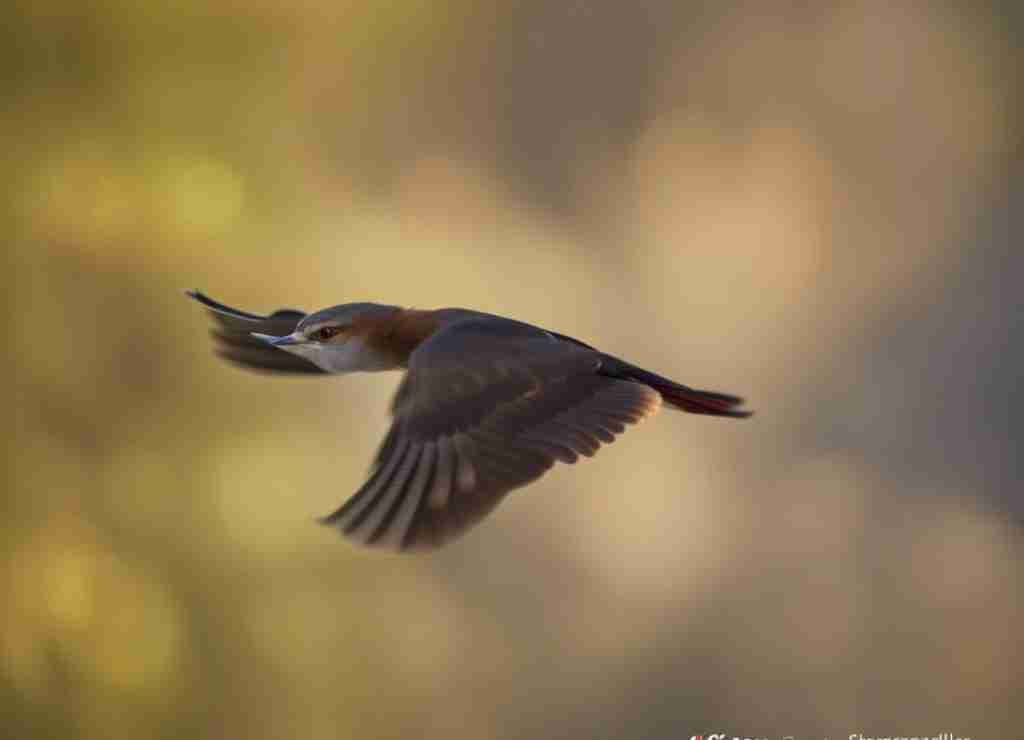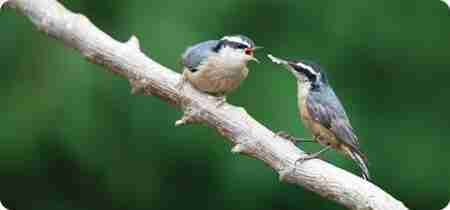[et_pb_section fb_built=”1″ admin_label=”section” _builder_version=”4.16″ da_disable_devices=”off|off|off” global_colors_info=”{}” da_is_popup=”off” da_exit_intent=”off” da_has_close=”on” da_alt_close=”off” da_dark_close=”off” da_not_modal=”on” da_is_singular=”off” da_with_loader=”off” da_has_shadow=”on”][et_pb_row admin_label=”row” _builder_version=”4.16″ background_size=”initial” background_position=”top_left” background_repeat=”repeat” global_colors_info=”{}”][et_pb_column type=”4_4″ _builder_version=”4.16″ custom_padding=”|||” global_colors_info=”{}” custom_padding__hover=”|||”][et_pb_text admin_label=”Intro” _builder_version=”4.22.1″ _module_preset=”default” global_colors_info=”{}”]
Imagine having the ability to remember the precise locations of hundreds of hidden objects, recall complex routes through intricate environments, and never forget a face or a song.
It seems like something out of a science fiction novel, but for birds, it’s a reality. With their incredible memory skills, birds have been fascinating researchers for years. From the caching behaviors of some species to the impressive spatial memory of others, these feathered creatures have proven themselves to be true masters of remembering.
In this article, we will explore the amazing memory skills of birds and uncover the secrets behind their extraordinary abilities.
The Amazing Memory Skills of Birds
[/et_pb_text][pac_divi_table_of_contents included_headings=”off|on|on|off|off|off” level_markers_1=”whole” _builder_version=”4.22.1″ _module_preset=”default” global_colors_info=”{}”][/pac_divi_table_of_contents][et_pb_text admin_label=”1″ _builder_version=”4.22.1″ _module_preset=”default” global_colors_info=”{}”]
Introduction
Birds are fascinating creatures that possess a wide range of incredible abilities. One such ability that has captured the attention of scientists and researchers is their remarkable memory. Birds have shown extraordinary memory skills in various aspects of their lives, which has left experts in awe. This article will delve into the different types of memory exhibited by birds and explore the factors that influence their memory capabilities. Additionally, we will discuss the implications of bird memory in conservation efforts and its relevance in understanding human memory.
Birds with Extraordinary Memory
Several bird species have been studied extensively for their exceptional memory skills. One notable species is the Clark’s nutcracker (Nucifraga columbiana), which is capable of remembering the location of thousands of seeds it has cached. This remarkable memory allows the nutcracker to retrieve these seeds months later when food is scarce, providing a crucial survival advantage in harsh environments.
Another bird renowned for its memory is the western scrub-jay (Aphelocoma californica). These birds have been observed to remember the contents of thousands of different caches, including the type of food and its perishability. This ability helps them efficiently manage their resources while reducing the risk of consuming spoiled food.
[/et_pb_text][et_pb_video src=”https://youtu.be/ymi24mES4TM” _builder_version=”4.22.1″ _module_preset=”default” global_colors_info=”{}”][/et_pb_video][et_pb_text admin_label=”2″ _builder_version=”4.22.1″ _module_preset=”default” global_colors_info=”{}”]
Types of Memory in Birds
1. Spatial Memory
Birds excel in spatial memory, allowing them to navigate complex environments with ease. They are capable of remembering precise locations, such as nesting sites, food sources, and migration routes. The homing instinct demonstrated by pigeons is a classic example of their exceptional spatial memory.
2. Associative Memory
Birds also exhibit associative memory, which involves linking two or more stimuli. For instance, certain bird species can associate specific signals or cues with potential threats, allowing them to exhibit specific defensive behaviors when encountering similar cues in the future.
3. Episodic Memory
Episodic memory involves recalling specific events or episodes from the past. Birds, particularly corvids such as crows and jays, have shown impressive episodic memory. They can remember past events, such as where they stored food or encountered a predator, and adjust their behavior accordingly.
4. Vocal Mimicry
Many bird species, such as parrots and starlings, have the ability to mimic a wide range of sounds, including human speech. This vocal mimicry requires excellent auditory memory, as birds need to remember the sounds and reproduce them accurately.
5. Food Storing Memory
Certain bird species are known for their impressive food storing memory. For example, the black-capped chickadee (Poecile atricapillus) can remember the locations of thousands of seeds it has hidden throughout its territory. This skill assists them in surviving during the winter months when food availability is scarce.
6. Migration Navigation
Bird migration is a complex phenomenon that relies heavily on memory. Many bird species undertake long-distance migrations and use environmental cues, such as the position of the sun or landmarks, to navigate their way to their breeding or wintering grounds. This ability to remember their migration routes is crucial for their survival.
7. Tool Use and Problem-Solving
Certain bird species, including some corvids and New Caledonian crows, have demonstrated remarkable tool-use and problem-solving abilities. These birds can remember how to use tools to obtain food or solve complex puzzles, showcasing their exceptional memory skills in a practical context.
Factors Influencing Bird Memory
Various factors can influence the memory capabilities of birds. Understanding these factors is vital in comprehending why some bird species possess exceptional memory skills while others may not.
1. Brain Size and Anatomy
The size and complexity of the bird’s brain play a crucial role in their memory abilities. Species with larger brains, especially regions associated with memory, tend to have better memory skills. Additionally, the hippocampus, a brain region involved in memory formation, tends to be more developed in birds with exceptional memory capabilities.
2. Environmental Factors
The environment in which birds live can have a significant impact on their memory skills. For example, birds in complex, ever-changing environments may develop better memory capabilities to navigate and exploit available resources effectively.
3. Social Behavior
Birds that exhibit complex social behaviors often have improved memory skills. Living in social groups requires individuals to remember social interactions, hierarchies, and alliances, leading to the development of enhanced memory capacities.
4. Ecological and Evolutionary Pressures
The ecological and evolutionary pressures a bird species faces also influence their memory abilities. Birds that rely heavily on certain memory tasks, such as caching food, are more likely to possess superior memory skills compared to species that don’t face the same survival challenges.
[/et_pb_text][et_pb_image src=”https://afeathertogether.com/wp-content/uploads/2023/09/kBSQqhzaT9kUQb4ParI0-1-vhzwk.jpg” title_text=”kBSQqhzaT9kUQb4ParI0–1–vhzwk” admin_label=”I1″ _builder_version=”4.22.1″ _module_preset=”default” global_colors_info=”{}”][/et_pb_image][et_pb_text admin_label=”3″ _builder_version=”4.22.1″ _module_preset=”default” global_colors_info=”{}”]
Implications and Significance of Bird Memory
1. Conservation
Understanding the memory skills of birds can have significant implications for conservation efforts. By studying their memory abilities, researchers can gain insights into how birds navigate their environments, locate food sources, and adapt to changing conditions. This knowledge can help in designing effective conservation strategies to protect vital habitats and aid birds in overcoming environmental challenges.
2. Insights into Human Memory
Bird memory research also provides valuable insights into human memory. As birds and humans share certain cognitive processes, studying bird memory can enhance our understanding of memory formation, retrieval, and cognitive strategies. This knowledge can be applied to various fields, including neuroscience and psychology, potentially benefiting human memory-related disorders and enhancing cognitive training techniques.
Conclusion
Birds possess amazing memory skills that enable them to perform remarkable feats in their daily lives. From remembering precise locations to mimicking sounds and solving complex problems, their memory abilities are truly awe-inspiring. Understanding the factors that influence bird memory and the implications it holds for conservation and human memory research opens up exciting avenues for further exploration.
[/et_pb_text][et_pb_image src=”https://afeathertogether.com/wp-content/uploads/2023/09/x3LZOVfLF65zCRwoWcnD-1-qyzap.jpg” title_text=”x3LZOVfLF65zCRwoWcnD–1–qyzap” admin_label=”I2″ _builder_version=”4.22.1″ _module_preset=”default” global_colors_info=”{}”][/et_pb_image][et_pb_text _builder_version=”4.22.1″ _module_preset=”default” global_colors_info=”{}”][/et_pb_text][et_pb_text _builder_version=”4.22.1″ _module_preset=”default” global_colors_info=”{}”][/et_pb_text][et_pb_text _builder_version=”4.22.1″ _module_preset=”default” global_colors_info=”{}”][/et_pb_text][et_pb_image _builder_version=”4.22.1″ _module_preset=”default” global_colors_info=”{}”][/et_pb_image][et_pb_image _builder_version=”4.22.1″ _module_preset=”default” global_colors_info=”{}”][/et_pb_image][et_pb_image _builder_version=”4.22.1″ _module_preset=”default” global_colors_info=”{}”][/et_pb_image][et_pb_image _builder_version=”4.22.1″ _module_preset=”default” global_colors_info=”{}”][/et_pb_image][et_pb_image _builder_version=”4.22.1″ _module_preset=”default” global_colors_info=”{}”][/et_pb_image][/et_pb_column][/et_pb_row][/et_pb_section]



